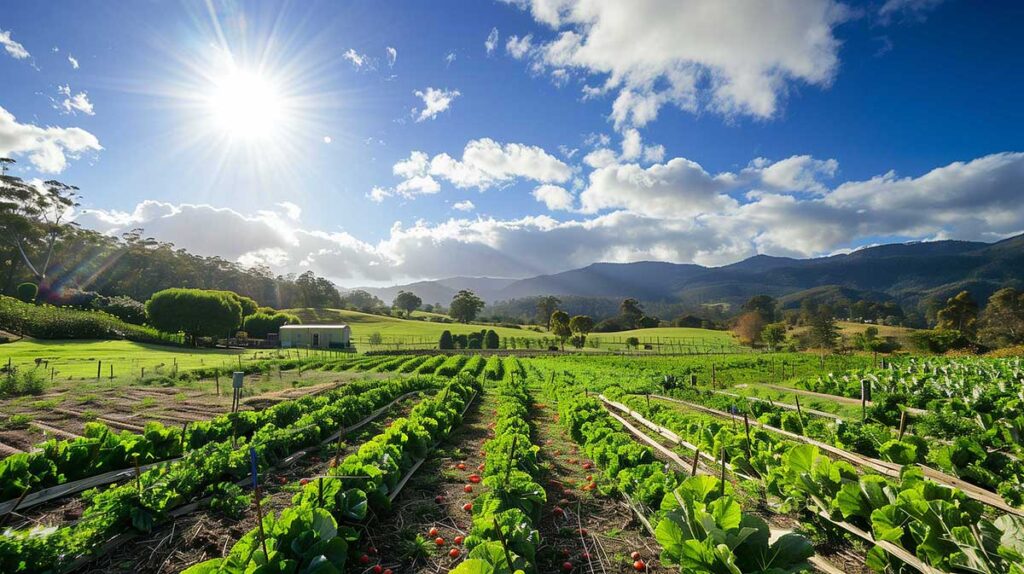
All You Need to Know About Organic: Benefits and Tips
Organic food and lifestyle products are more popular than ever. The demands of modern living have brought health issues to the surface, and the stark reality of climate change has seen growing environmental awareness. At a time when small decisions mean a lot, more people are choosing to go organic.
According to figures from Australian Organic Limited, the organic industry provides a $851 million direct contribution to the Australian economy, along with 12,434 direct-full time jobs. When downstream effects are taken into account, the industry contributes a massive $2.6 billion to the national economy.

Organic Food Explained
Organic food describes produce without synthetic chemicals or genetically modified components. While this food is not necessarily 100% pesticide-free, it’s likely to be much more natural. According to Australian Certified Organic, the largest certification body in the country, organic food is “not just chemical free. It is a whole systems or holistic means of growing and handling food. The whole system is linked – Soil. Plants. Animals. Food. People. Environment.”
If you’re interested in buying organic, it’s important to understand organic certification systems and labels. While organic standards are regulated by several bodies in Australia, the landscape can be difficult to navigate. There are currently two key standards governing the production, processing, and labelling of organic food in Australia:
- The National Standard for Organic and Bio-Dynamic Produce, which is an export standard.
- The Australian Standard for Organic and Biodynamic Products, which is a domestic and import standard.
The domestic standard was requested by the Organic Federation of Australia, which represents a number of industry, consumer, retailer, and regulatory groups. Both of these systems work side by side, as a way to trace the integrity of organic products from paddock to plate. However, despite the existence of two robust standards, neither one can mandate certification. Instead, they set out requirements for third-party certification via approved organisations.
There are seven organisations in Australia fulfilling this role:
- AUS-QUAL Limited (AUSQUAL)
- ACO – Australian Certified Organic
- Bio-Dynamic Research Institute
- NASAA – The National Association of Sustainable Agriculture Australia
- OFC – Organic Food Chain
- Safe Food Production Queensland
- Tasmanian Organic Dynamic Producers
Along with certification systems, the organic food industry is also influenced by the Australian Competition & Consumer Commission (ACCC). While the ACCC doesn’t set standards, they do keep an eye on organic claims. If any product or its ingredients are described as organic in Australia, the company making the product must be able to prove the claim.

Organic food offers a number of nutritional benefits. While health impacts vary depending on the particular food and production technique, organic consumers often enjoy less exposure to synthetic chemicals and a richer and more balanced nutritional profile. Many people prefer organic food, as it has fewer pesticides, antibiotics, and additives. In terms of vitamins and minerals, consumers can benefit from lower nitrate levels, more vitamin C, and higher levels of phosphorus, magnesium, and iron.
Organic Farming and the Environment
Along with personal health, many people decide to go organic for environmental reasons. Conventional farming may be successful, but it has a negative impact on biodiversity and the natural environment. The excessive use of chemicals in agriculture has adverse environmental effects, many of which can be avoided by following organic farming practices.
For example, organic farming typically avoids monocropping, which involves planting the same crop over and over again using synthetic fertilisers and pesticides. This leads to a decline in soil fertility over time, along with a massive increase in salinity and blue-green algae production. In contrast, organic agriculture attempts to diversify crops using physical weed control and animal-based fertilisers.
Along with protecting natural ecosystems, many people choose to avoid conventional farming due to the treatment of livestock. Cows, sheep, pigs, and chickens are farmed by the millions, and the quality of their life and death is often far from ideal. If you choose to go organic, you’re reducing your carbon footprint while having a positive effect on the planet and all its inhabitants.

Organic Products Beyond Food
The organic industry is thriving in Australia, and it’s not just about food. From textiles and clothing to kitchen products and personal care, the organic marketplace is incredibly diverse. Sustainable fashion is a growing trend in Australia, and organic textiles are a big part of the industry. Based on data from YouGov Surveys, 46% of consumers are more likely to purchase a sustainable fashion item, with this number even bigger among younger generations.
Organic ingredients are also widely used in bathroom, beauty, and personal care items. People apply many of these products directly to their skin, which makes organic alternatives highly desirable. Organic beauty products prioritise pesticide-free ingredients, and they also avoid or limit genetically modified organisms (GMOs). This results in safer products, both for the consumer and the wider world. Based on figures from Innovius Research, the organic and vegan skincare market is expected to reach $23.4 million in 2024, with a growth rate of 6.3% since 2020.
The Cost of Going Organic
Organic food and other products appeal to a wide portion of the Australian market. Market penetration is limited by certain factors, however, with cost being the biggest one. Organic food products are typically more expensive than conventional foods, and selection can also be limited. There are many reasons for this discrepancy, including a smaller market size, more labour-intensive farming practices, lower crop yields, and greater variations in quality due to seasonal conditions.

If you want to enjoy fresh organic produce on a regular basis, you have to think outside the box. Instead of shopping at supermarkets or fruit and veg shops, online retailers can be a fantastic option. There are lots of online businesses dedicated to organic produce, with innovative business models making it easier and more affordable than ever.
One of the biggest expenses of buying organic is the time and energy needed to visit multiple retailers. If you can access multiple store owners under a single virtual roof, this cost can be avoided. There’s also a very real opportunity cost associated with eating organic. When you consume unhealthy foods for decades on end, you may have to deal with larger healthcare costs in the future.
Debunking Myths About Organic Produce
There are many myths associated with organic food. One common misconception is that organic food is always more expensive. Like all fresh foods, organic prices vary greatly based on multiple factors, such as seasonality, location, and market size. One of the best ways to keep prices down is to find a great source of produce. When you buy most of your food from a single location, shopping will be faster, easier, and much less expensive.
Along with high costs, there are other myths associated with organic foods. For example, some people think the organic certification system is unreliable. As you can see from the detailed information listed above, however, there is a robust system of standards operating in Australia. While the labelling system is voluntary, producers must be able to prove all organic claims.
With organic foods experiencing a sharp rise in popularity, there has been renewed interest in this field from the scientific community. Lots of evidence has been gathered on organic foods and their relationship with human health. According to a systematic review into organic food, based on data from clinical trials, positive links between organic foods and good health have been noted.
While further research is needed and definitive statements can’t be made, the study linked an organic diet with “reduced incidence of metabolic syndrome, high BMI, non-Hodgkin lymphoma, infertility, birth defects, allergic sensitisation, otitis media and pre-eclampsia.” According to the paper, “Consumption of organic food is often tied to overall healthier dietary practices and lower levels of overweight and obesity.”
How to Shop for Organic Products
If you want to benefit from organic products, it’s important to identify genuine items. Most organic products sold in Australia feature the Australian Certified Organic BUD Logo, which can be found in everything from food to beauty products. Other labels may be used, however, so it’s important to review all products and understand the information presented in this guide.
Final Thoughts
Healthy organic living offers numerous benefits in the modern world. Many commercial foods are saturated with pesticides and chemicals, and poor farming practices have stripped the land of certain minerals. If you want to avoid synthetic chemicals and have a positive impact on the world around you, it’s vital to go organic.
For a huge collection of organic products under one virtual roof, check out Local Food Market Co. When we make new shopping habits and eat organic foods, we can step towards a brighter future together. Review our website to see how it works, or contact our team to learn more.











